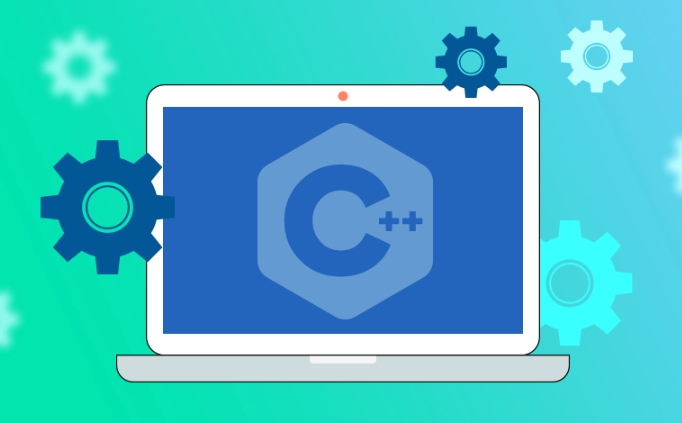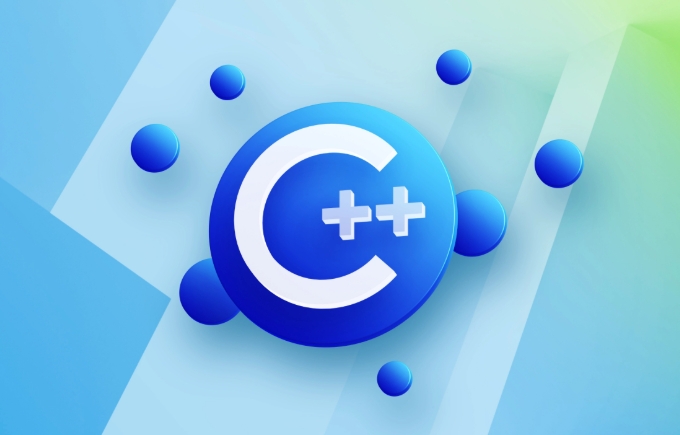Key features of modern C include: 1. Move semantics and smart pointers, reduce copying through std::move() and Rvalue references, and use smart pointers such as std::unique_ptr to improve memory management security; 2. Auto, scope for loops and initialization lists, simplify type declarations and container initialization; 3. Lambda expressions and STL improvements, making the code more concise and efficient, and enhancing algorithm operation capabilities; 4. Structured binding and constexpr optimization, improving compilation capabilities and variable depackaging efficiency. These updates significantly enhance C's security, readability, and performance performance.

If you're looking to get up to speed with modern C , especially the features introduced in C 11, C 14, and C 17, you're not alone. These standards brought a ton of useful tools that make code cleaner, safer, and more expressive. Whether you're coming from older C codebases or another language altogether, understanding these updates will help you write better C today.

Move Semantics and Smart Pointers
One of the biggest changes in C 11 was the introduction of move semantics , which helps avoid unnecessary copies. You'll see this used heavily in containers like std::vector , where moving a large vector is much cheaper than copying it.

Two key concepts here are:
-
std::move()— tells the compiler it's OK to "steal" resources from an object. - Rvalue references (
T&&) — allow functions to distinguish between temporary objects and named ones.
Also part of this shift were smart points : std::unique_ptr , std::shared_ptr , and std::weak_ptr . These replace raw points and manual new / delete , reducing memory leaks significantly. For example:

auto ptr = std::make_unique<MyClass>(); // automatically deleted when out of scope
This kind of pattern makes managing dynamic memory much easier and less error-prone.
Auto, Range-Based For Loops, and Initializer Lists
Modern C gives you tools to reduce boilerplate without losing clarity.
auto lets the compiler deduce types for you, which is especially handy with iterators:
for (auto it = myvec.begin(); it != myvec.end(); it)
Even better: range-based for loops simplify iteration over containers:
for (const auto& item : myvec) {
std::cout << item << std::endl;
}And initializer lists let you write clean, readable container initializations:
std::vector<int> v = {1, 2, 3, 4};These aren't just syntactic sugar — they help avoid mistakes and make your code easier to read and maintain.
Lambdas and STL Improvements
C 11 added lambda expressions , which are basically inline functions you can define right where you use them. This is super useful when working with algorithms from the Standard Template Library (STL):
std::sort(myvec.begin(), myvec.end(), [](int a, int b) {
return a > b; // sort descending
}); The STL itself got some nice upgrades too. Things like std::unordered_map , std::tuple , and std::function became much more usable.
In C 14 and C 17, lambda improvements continued:
- Generic lambdas (C 14): Use
autoparameters inside lambdas. - * Capture ` this` by value in lambdas** (C 14): Makes async code safer.
-
std::optional,std::variant, andstd::any(C 17): Help manage optional values, unions, and generic storage safely.
These additions give you more expressive power while keeping type safety intact.
Structured Bindings and constexpr Improvements
C 17 introduced structured bindings , which makes unpacking tuples or struct members much cleaner:
std::map<std::string, int> m;
auto [it, inserted] = m.insert({"key", 42}); Here, both the iterator and a boolean result are assigned in one line — no need for .first and .second .
Another area that saw steady improvement across versions is constexpr , which allows more computings at compile time. In C 17, even if statements and loops can be constexpr , letting you write logic that runs during compilation.
This opens the door for performance gains and safer compile-time checks.
That's a solid starting point for diving into modern C . There's more to explore, but these features form the core of what makes C 11 through C 17 so powerful. Keep experimenting with them in real code — and don't worry if it feels a bit overwhelming at first. It gets smoother as you go.
The above is the detailed content of Modern C tutorial for C 11/14/17. For more information, please follow other related articles on the PHP Chinese website!

Hot AI Tools

Undress AI Tool
Undress images for free

Undresser.AI Undress
AI-powered app for creating realistic nude photos

AI Clothes Remover
Online AI tool for removing clothes from photos.

Clothoff.io
AI clothes remover

Video Face Swap
Swap faces in any video effortlessly with our completely free AI face swap tool!

Hot Article

Hot Tools

Notepad++7.3.1
Easy-to-use and free code editor

SublimeText3 Chinese version
Chinese version, very easy to use

Zend Studio 13.0.1
Powerful PHP integrated development environment

Dreamweaver CS6
Visual web development tools

SublimeText3 Mac version
God-level code editing software (SublimeText3)

Hot Topics
 C Polymorphism: Enhancing Code Reusability and Flexibility
Jun 10, 2025 am 12:04 AM
C Polymorphism: Enhancing Code Reusability and Flexibility
Jun 10, 2025 am 12:04 AM
Polymorphism in C is implemented through virtual functions and abstract classes, enhancing the reusability and flexibility of the code. 1) Virtual functions allow derived classes to override base class methods, 2) Abstract classes define interfaces, and force derived classes to implement certain methods. This mechanism makes the code more flexible and scalable, but attention should be paid to its possible increase in runtime overhead and code complexity.
 C Polymorphism : is function overloading a kind of polymorphism?
Jun 20, 2025 am 12:05 AM
C Polymorphism : is function overloading a kind of polymorphism?
Jun 20, 2025 am 12:05 AM
Yes, function overloading is a polymorphic form in C, specifically compile-time polymorphism. 1. Function overload allows multiple functions with the same name but different parameter lists. 2. The compiler decides which function to call at compile time based on the provided parameters. 3. Unlike runtime polymorphism, function overloading has no extra overhead at runtime, and is simple to implement but less flexible.
 C Destructors code samples
Jun 13, 2025 am 12:04 AM
C Destructors code samples
Jun 13, 2025 am 12:04 AM
The destructor in C is used to free the resources occupied by the object. 1) They are automatically called at the end of the object's life cycle, such as leaving scope or using delete. 2) Resource management, exception security and performance optimization should be considered during design. 3) Avoid throwing exceptions in the destructor and use RAII mode to ensure resource release. 4) Define a virtual destructor in the base class to ensure that the derived class objects are properly destroyed. 5) Performance optimization can be achieved through object pools or smart pointers. 6) Keep the destructor thread safe and concise, and focus on resource release.
 How to Implement Polymorphism in C : A Step-by-Step Tutorial
Jun 14, 2025 am 12:02 AM
How to Implement Polymorphism in C : A Step-by-Step Tutorial
Jun 14, 2025 am 12:02 AM
Implementing polymorphism in C can be achieved through the following steps: 1) use inheritance and virtual functions, 2) define a base class containing virtual functions, 3) rewrite these virtual functions by derived classes, and 4) call these functions using base class pointers or references. Polymorphism allows different types of objects to be treated as objects of the same basis type, thereby improving code flexibility and maintainability.
 What Are the Different Kinds of Polymorphism in C ? Explained
Jun 20, 2025 am 12:08 AM
What Are the Different Kinds of Polymorphism in C ? Explained
Jun 20, 2025 am 12:08 AM
C has two main polymorphic types: compile-time polymorphism and run-time polymorphism. 1. Compilation-time polymorphism is implemented through function overloading and templates, providing high efficiency but may lead to code bloating. 2. Runtime polymorphism is implemented through virtual functions and inheritance, providing flexibility but performance overhead.
 C : Is Polymorphism really useful?
Jun 20, 2025 am 12:01 AM
C : Is Polymorphism really useful?
Jun 20, 2025 am 12:01 AM
Yes, polymorphisms in C are very useful. 1) It provides flexibility to allow easy addition of new types; 2) promotes code reuse and reduces duplication; 3) simplifies maintenance, making the code easier to expand and adapt to changes. Despite performance and memory management challenges, its advantages are particularly significant in complex systems.
 C Destructors: Common Errors
Jun 20, 2025 am 12:12 AM
C Destructors: Common Errors
Jun 20, 2025 am 12:12 AM
C destructorscanleadtoseveralcommonerrors.Toavoidthem:1)Preventdoubledeletionbysettingpointerstonullptrorusingsmartpointers.2)Handleexceptionsindestructorsbycatchingandloggingthem.3)Usevirtualdestructorsinbaseclassesforproperpolymorphicdestruction.4
 Polymorphism in C : A Comprehensive Guide with Examples
Jun 21, 2025 am 12:11 AM
Polymorphism in C : A Comprehensive Guide with Examples
Jun 21, 2025 am 12:11 AM
Polymorphisms in C are divided into runtime polymorphisms and compile-time polymorphisms. 1. Runtime polymorphism is implemented through virtual functions, allowing the correct method to be called dynamically at runtime. 2. Compilation-time polymorphism is implemented through function overloading and templates, providing higher performance and flexibility.






